John McEnroe says 'no-brainer' for players to use legal drugs
- Published
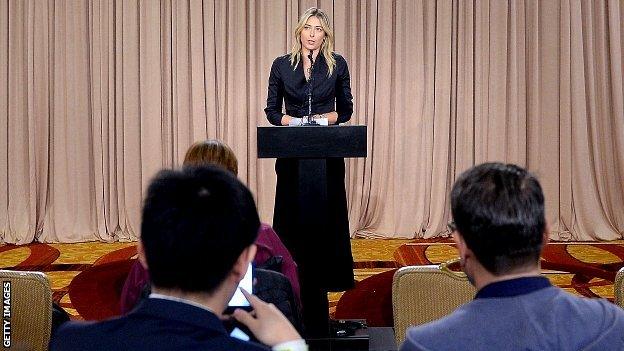
Sharapova held a news conference on 7 March to announce she had tested positive for meldonium
John McEnroe says he has no issue with a player taking a legal drug, even if it has performance-enhancing qualities.
The three-time Wimbledon champion's comments follow Maria Sharapova's positive test for meldonium.
Sharapova took the drug, which was added to the World Anti-Doping Agency's banned list on 1 January, for 10 years.
"If a drug is legal? That is like a no-brainer. I mean, are you kidding?" McEnroe told BBC Sport on a visit to the BNP Paribas Open in Indian Wells.
"People have been looking since the beginning of time for an edge, and you're constantly looking for these things in any way, shape or form."
Sharapova, 28, will face an International Tennis Federation (ITF) panel with the power to suspend her for up to four years.
The five-time Grand Slam champion says she had taken meldonium for medical reasons for the past 10 years, and failed to notice when it was added to the banned list for 2016.
Meldonium is often prescribed to treat heart complaints, but there have been 99 positive tests for the drug since the start of the year.
British number one Andy Murray told BBC Radio 5 live this week he finds it "strange that so many athletes competing at the top level of their sport would have that condition".
The world number two also said he did not think he had been tested enough this year.
McEnroe added: "I do think that for Murray, if he thought there were people out there that were benefiting from something and he was not benefiting from it, you can understand why he would want to have more testing.
"That's the whole issue, because if people feel they are getting an edge, and someone else isn't, that's just the way it is."
'Sharapova's team should have double-checked'
Former US Open finalist Pam Shriver believes Sharapova's support team were at fault for failing to notice the change in meldonium's status.
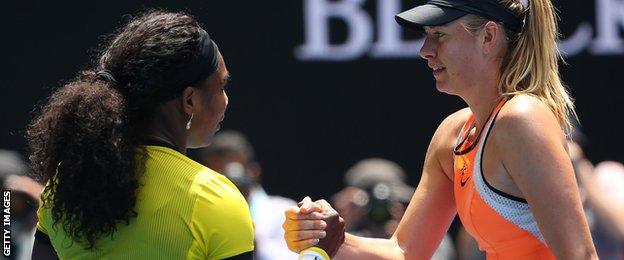
Sharapova failed a drug test on the day she lost to Serena Williams at the Australian Open
"In this day and age of the athlete there has to at least be someone on the team responsible for doing a double-check," Shriver told BBC Radio 5 live's Sportsweek. "This is so important."
Sharapova has criticised Wada's communications about changes to the banned list, external for being "buried in newsletters, websites, or handouts", but Shriver agreed with the Russian that it was ultimately the player's responsibility.
"In the scheme of the importance of this matter, it's so vital that it's worth a lot more than just five to 10 minutes to fish through a website or a newsletter," said the American.
The case is likely to take up to three months, with potential recourse to the Court of Arbitration for Sport if the decision is contested.
"To me [a ban] could go anywhere from nine months to two years. I think four years would be way overdone," said Shriver.
"I think everyone wants to see strong evidence that there was a medical situation that warranted going on a medication for 10 years."
- Published13 March 2016
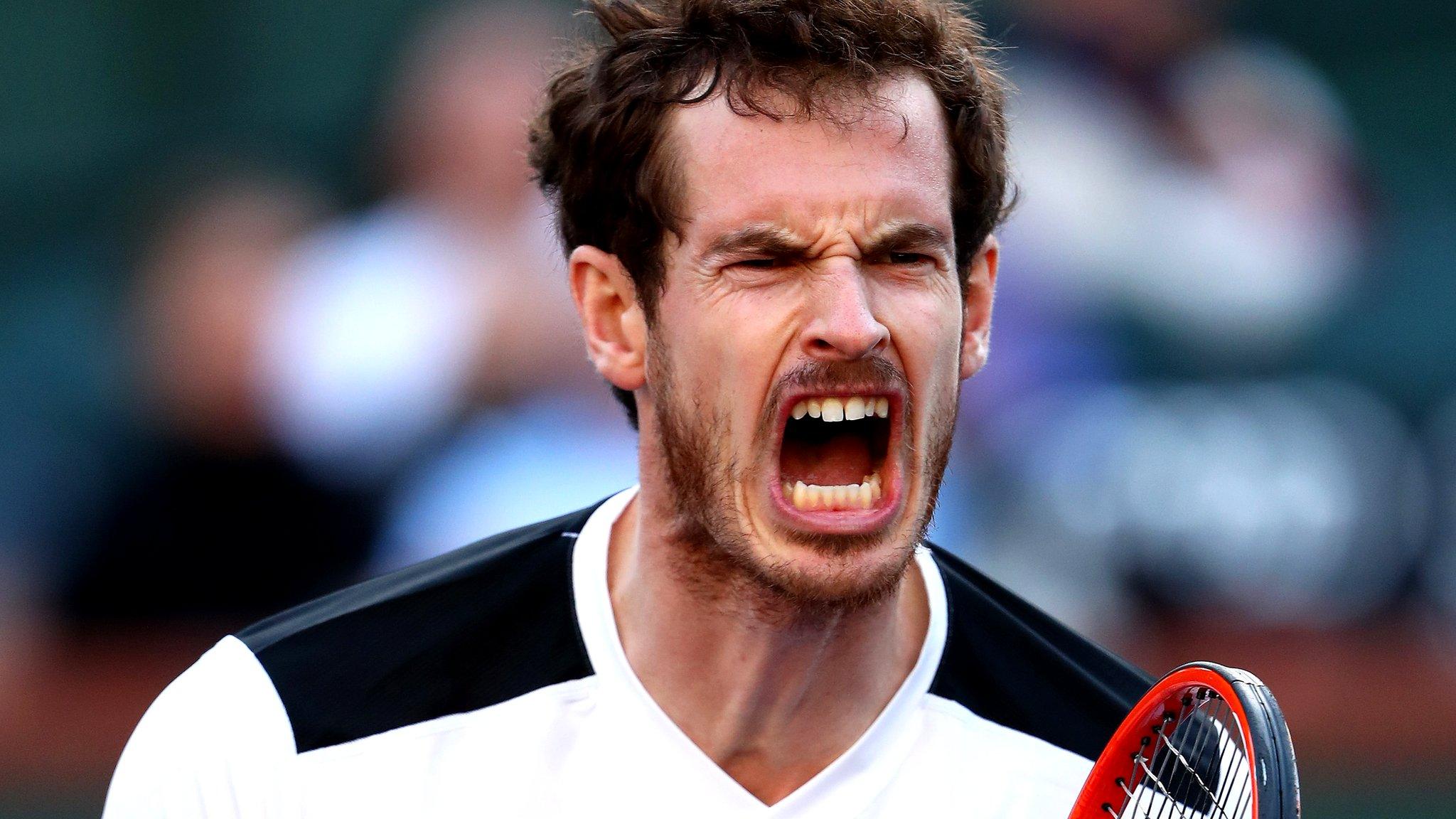
- Published12 March 2016
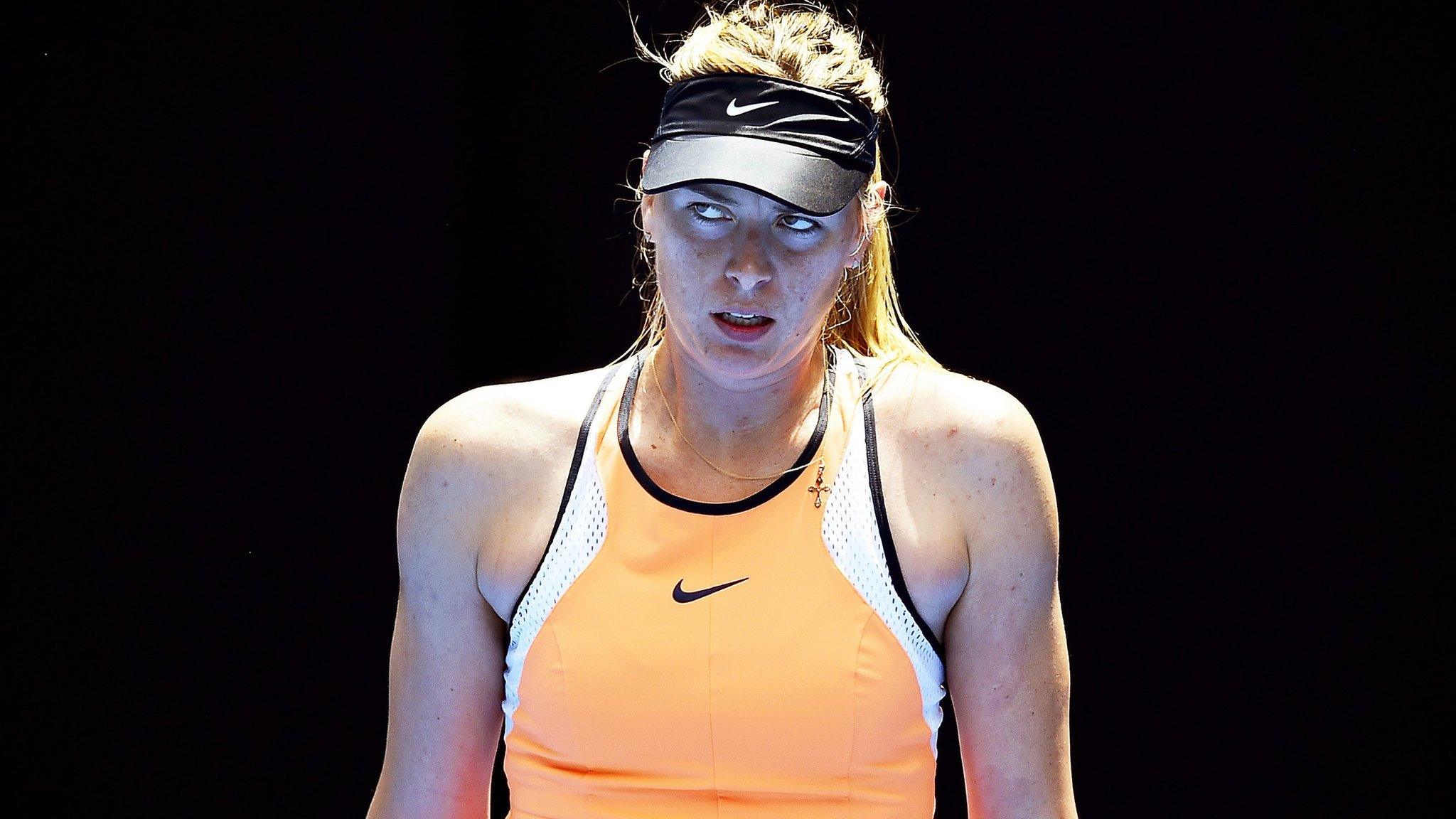
- Published12 March 2016
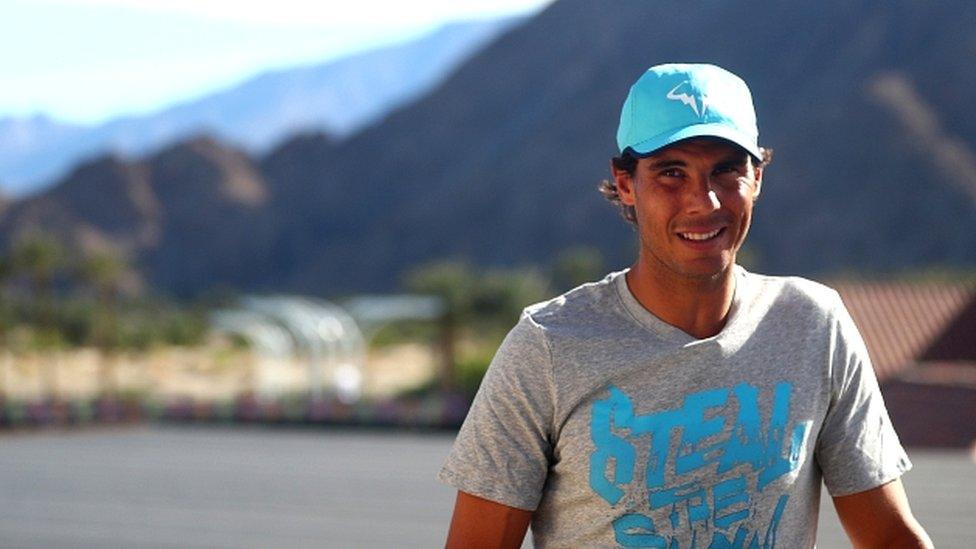
- Published17 June 2019
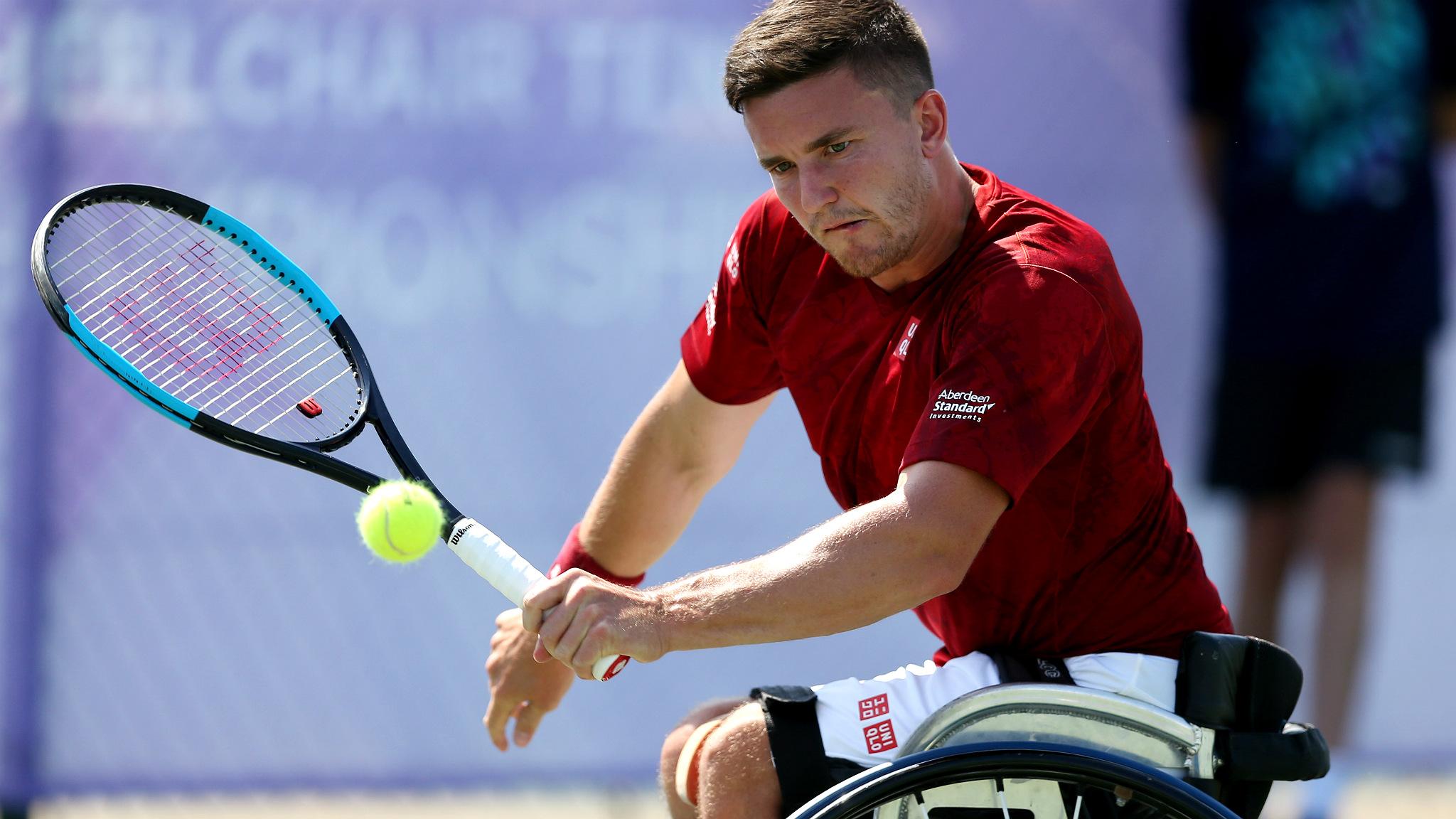
- Published19 July 2016
